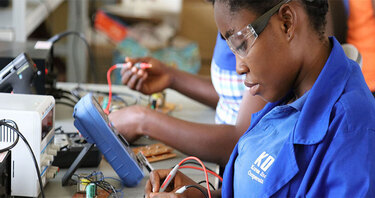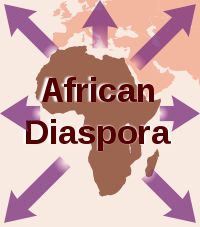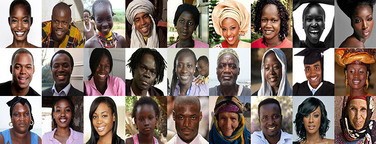Jobs In Africa For The Diaspora
NATURAL RESOURCES IN AFRICA AND HOW APPLICATION IN CREATING REVENUES
Africa by nature is endowed with so many natural resources that, if tapped carefully, can make it one of the wealthiest continents in the world. The continent has many countries that have tons of untapped natural resources waiting to be discovered. From crude oil to natural gas to Uranium, the limits that Africa has reached when it comes to natural resources are monumental. But like every other gold mine, this has to be appropriately managed to create wealth for Africa.
HOW TO CREATE WEALTH THROUGH NATURAL RESOURCES FOR AFRICA
As mentioned earlier, having natural resources is not a problem for Africa. The real issue comes from converting that rich untapped gold mine into something unique and create wealth for Africa as a whole.
Research has shown that job opportunities in Africa have centred around Animal Husbandry, Logistics, Food Processing, and Renewable Energy. The problem remains that most Africans are not using these sectors to create better output and revenue. To maximize production in these areas, diaspora Africans would have to consider aiding those areas through an effective process.
Some of the ways to maximize revenues for Africa through Natural resources include:
Good and Effective Leadership
The leadership structure of most African countries has continued to deteriorate in recent times; it has affected the ability of most African countries to reach the potential that they solely deserve. For natural resources to be duly converted into riches, leaders should lead at the front with good decisions that will manage them without corruption. African countries such as Nigeria and Congo have continued to suffer the long after-effects of lousy leadership.
A situation that Africa as a whole needs to change and fast to turn the continent’s fortunes around.
Support More Technological Startups in Africa
For the longest time, African countries have continued to import most of their products from Europe and America and has halted their ability to use their natural resources for such innovations. Take Congo, for instance, a country that is rich in Diamonds. Still, its people are impoverished – a visual image of what happens when governments outsource production to other foreign countries outside Africa.
For more natural resources to be appropriately used, technological startups that can mine and effectively use these resources should be created. Imagine how much an African giant like Nigeria will save in revenues if she can refine her crude oil rather than export them. This is the kind of technological ingenuity that Africa needs at the moment. It will also create job opportunities for their educated youths.
No nation provides good revenue without manufacturing its products. Africa as a continent should take a clue from the West in this field.
Reduce Foreign Intervention
This may seem like the long after-effects of colonialism, but Africa has been reliant on Western influence for the longest time. It’s been a long since too much foreign interest in African affairs has continued to hurt the continent significantly. Most of this is caused by the clamour for their natural resources, and this pushes them to put mechanisms to exploit them while watching the African countries struggle and fight over the crumbs.
Africa has developed enough to stand on her own if only they get influential leaders with her development and progress in mind. The time is now for Africa to take centre stage in the world, and this doesn’t include influence from foreign parties that cares very little about what happens to her.
Support Education and Enlightenment of Young minds
The importance of education can never be overemphasized for Africans. Knowing what to do with any particular natural resource will only come naturally if more educated and enlightened youths are brought on board. This is why African countries must continue to fully motivate their youths to embrace the apparent benefits of education.
Diaspora Africans and the Role they Can Play in the Ever-growing Logistics, Animal Husbandry, Food Processing, and Renewable Energy Sectors
Renewable Energy has been touted as the future of power generation in Africa since most African areas still lack access to light. Africa as a whole is a fertile ground that is good for cultivation. This has seen many African billionaires thriving in Agriculture, making it one of the biggest exports from the continent apart from oil. It is unfortunate that despite the abundant agricultural resources, Africa does not have efficient Food processing plants to process them.
This is where Diaspora Africans can come in with their ingenuity and exposure from the West. Renewable Energy should be top of the list to create power that will light up remote areas with little to no access to power plants. Africa already has good sunlight for solar-powered electricity. This can be a perfect place to start because every good business requires an adequate power supply.
The second area is to utilize the massive agricultural investments in Africa to create food processing plants that will provide affordable foods for Africans. It is appalling that in the 21st century, Africa still relies on companies in the West to get foods like beef, tomatoes, groundnut oil, and other food spices that are in abundance in most African farms. Countries like Nigeria have massive animal farms that they can use to process healthy foods that people can eat. The Nigerian situation only goes to prove the number of underutilized resources that are yet to be used.
The logistics business is another area that Africans in the diaspora should help in establishing. As more people migrate to the big cities, ease of transportation of items is prioritized mostly. This is why the logistics business is prioritized. Unfortunately, logistic companies in existence are either regional or too centralized in one region. This is where African diasporas can come in. With a good knowledge of logistic networks as applicable in the West, Africa can have an excellent logistic network system that can connect through several cities in Africa.
The establishment of these companies will create many job opportunities for young Africans and be a source through which the resource potential of Africa is manifested to the fullest.
To Finish Off Briskly
The passion for African development will continue to be the long-term goal of any African. This is why I believe that for Africa to turn its vast natural resources into riches, it must set effective management for its utilization. Click here for more information on working in Africa





